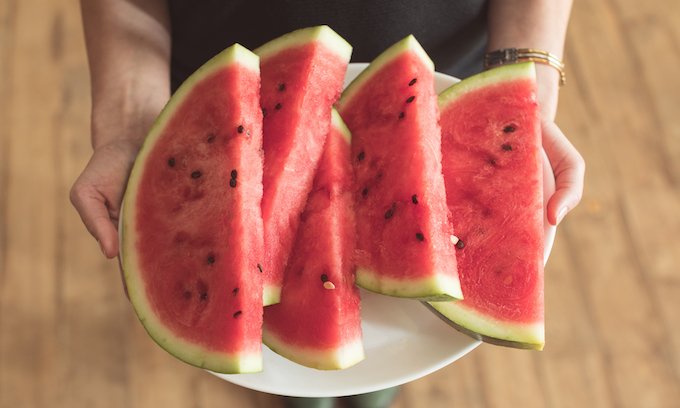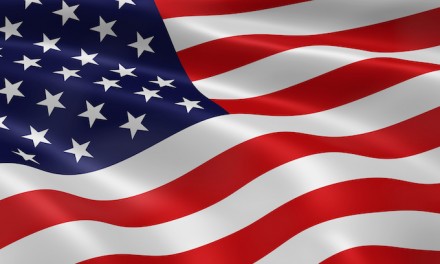The Children’s Museum of Indianapolis has removed a pre-packaged watermelon salad from a menu for its Juneteenth event following criticism.
The museum issued an apology and said it would no longer use the salad as part of the menu for its Juneteenth Jamboree event, which includes live performances and community artists, after a photo of the salad was shared on social media.
“As a museum, we apologize and acknowledge the negative impact that stereotypes have on Black communities,” the museum said.
“The salad has been removed from the menu. We are currently reviewing how we may best convey these stories and traditions during this year’s Juneteenth celebration as well as making changes around how future food selections are made by our food service provider.”
Juneteenth is a holiday that recognizes the day the last parts of the confederacy were freed from slavery in Galveston, Texas, on June 19, 1865.
President Joe Biden signed a law in June of 2021 formally making Juneteenth a federal holiday.
During the Jim Crow era, ads and other printed memorabilia depicted Black people “stealing, fighting over or sitting in streets eating watermelon,” according to the Smithsonian National Museum of African American History and Culture.
According to the Smithsonian, many African Americans in the South started growing and selling watermelons after emancipation. While the watermelon business became a symbol of freedom, Southern Whites turned the fruit “into a symbol of poverty” — which led to the racist stereotype spreading during Jim Crow.
In its statement, the Indianapolis museum said that its food service provider “uses the food and beverage menu to commemorate and raise awareness” for Juneteenth and other holidays.
“The team that made this selection included their staff members who based this choice of food on their own family traditions,” it said.
In a Facebook comment, the museum said that watermelon and other red foods are a staple of Juneteenth celebrations, including in its food court manager’s family’s celebrations.
“There should have been a label explaining the history and meaning behind this menu item and it should not have been on the shelf before that label was ready,” it wrote. “We understand how this appears with no context and we apologize. We are pulling it from our food court immediately until the sign is ready to accompany it.”
Museum patron Medoume Ndiaye, 27, told the IndyStar that the decision seemed “like a money grab.”
“They slap the word on items and feel they have done their part. It just seems like if a single person of color had been in the room when this was decided, it wouldn’t have gone forward,” Ndiaye said. “Maybe they learn from it, take it on the chin and don’t do it again.”
Copyright 2022 United Press International, Inc. (UPI). Any reproduction, republication, redistribution and/or modification of any UPI content is expressly prohibited without UPI’s prior written consent.
—-
This content is published through a licensing agreement with Acquire Media using its NewsEdge technology.



















Remove the watermelon by all means and substitute Crow, and all the corn of a celebration for continuing to be a slave for 2 years after your forefathers were freed by white Northern men, and two months after the Civil War ended. If blacks stopped celebrating being stupid, ignorant and all the wrong things and failures,,, and started celebrating the successes and victories for them, even if some were accomplished by white people. they would have no need for segregated things like Black month celebrations, Black TV channels or Only Black lives matter. They segregate by choice when it suits their purpose and it’s time to start cooking or do the heavy lifting, and join in only once the table is set and the inebriant mind and truth numbing chemicals start flowing.
“Hey President Washington, how about we start celebrating all your defeats and forget the character-building pains of Valley Forge. You will never get a city or a State named after you unless the losers and victims take over as the majority.” ,,,Prophesy fulfilled.
In Texas it is viewed as the Blacks Ramadam where fasting is suppose to occur during the daytime, so like the Muslims they just sleep all day and party all night. Only passion addicted whites join in on the facade. or ones like Beto desperately seeking black votes.
Fried Chicken, and several veggies are also very offensive to black people, so eat more fish. But China is over fishing the seas. Yet China released the deadly snakehead fish into the waters of the USA. They eat all other fish
The Democrat Party is loosing many voters by people of color as these people become highly educated intelligent people.
Thus the treasonous Democrat party bows down to the people of color in their political con and they are importing multi-millions of uneducated illegal immigrant and supporting them for their illegal immigrant votes. Democrat ruled cities and States have already given illegal immigrants the right to vote after living in the cities for as little as 30 days.
This latest liberal Democrat crusade has little or nothing to do with protecting the civil rights or sensitivities of Black Americans and everything to do with the Democrats setting themselves up as their saviors. The Democrats practice of patronizing groups cannot yield to the facts. For their cause is not defending the oppressed or the offended but about making themselves look wonderful with their latest destructive, hateful political racial Con.
How do these “policy makers” find the guts to leave the house in the morning?
I take it the salad was only being offered to (or forced upon) “people of color”? Otherwise there is no issue.
I saw a black man at MacDonald’s!!! You had best not serve any hamburgers on the 4th of July for fear of insulting someone’s great-great-great grandparents. In making this stupid move you make it appear as a valid cultural anomaly when it is NOT.
I live in a predominately white county in Washington State and Safeway, WINCO, Fred Meyer, QFC, Grocery Outlet, etc., sell plenty of watermelons. (Fried chicken is also a hot item from most delis.) Last year my entire family sat on the porch eating watermelon and, yes, spitting the seeds!!!!
They don’t cover the melons or wheel them into the back room when a black family comes in to do their shopping.
Congratulations CMI on resurrecting a dead, old, racial stereotype that a majority of Americans were totally unaware of.
.
Oh, the damned stupidity that is running rampant in this country.
I suppose because somebody threw out the idea that Blacks like fried chicken and watermelon. We;;, guess what—a lot of us White folks like those, too.
“As a museum, we apologize and acknowledge the negative impact that stereotypes have on Black communities,” the museum said. What BS—pure unadulterated BS. Well, it’s a museum—I guess they think like Neanderthals—they have rocks for brains. I sure hope I didn’t offend any cavemen.
Maybe I’ll go get a watermelon.
What’s next Banning the Bananas?
DON”T give these nutters any ideas.
Only 150 “people of color”/aka black people/africian -americans became MDs during the year of 2021. That is offensive and sad for so few blacks wanting to become Medical Doctors. Why is there not an outcry for Blacks to improve society?
Be proud being an African-American or a person of color. Remember if Biden says that the 1st,2nd amemdents are not absolute, then the amemdents to free the slaves, give voting rights to free slaves, give voting rights to women are not absolute and can and will be taken away. Wake up.
What??????? Are you kidding me? This is beyond ridiculous, stupid, “woke”,
This is flat out DUMB & STUPID!!!!!
DUMB and stupid seems to be all the left has anymore.
Are talking about the watermelon or juneteenth holiday ??
BOTH.
IS there a ‘white specific’ holiday? no.
To be completely “black” only, please remove all the “white” bread, rice, salt (leave the black pepper), potatoes, etc, etc. Of course you won’t be prejudice if only “black/people of color” are allowed/invited to the very unbias/non racist celebration.
I’ll be Celebrating the 4th of July. I even may eat Watermelon .